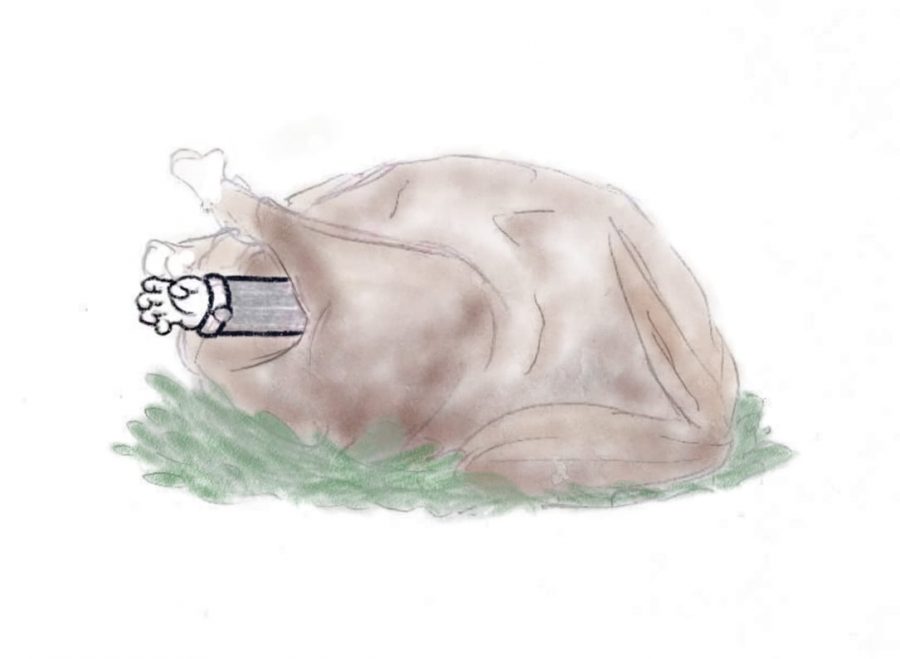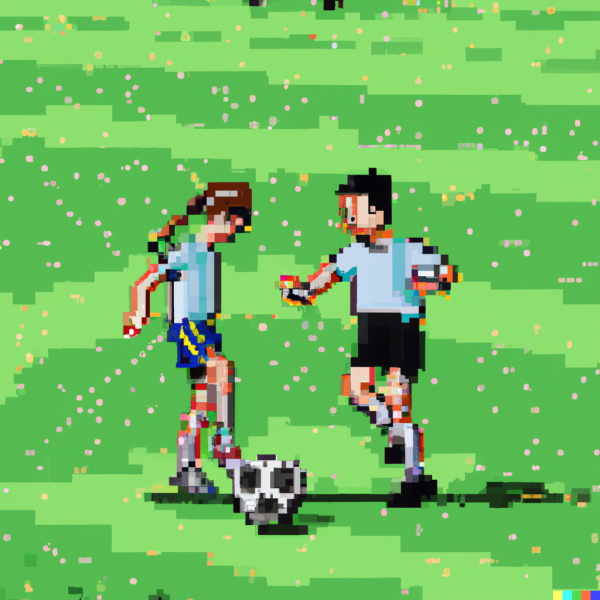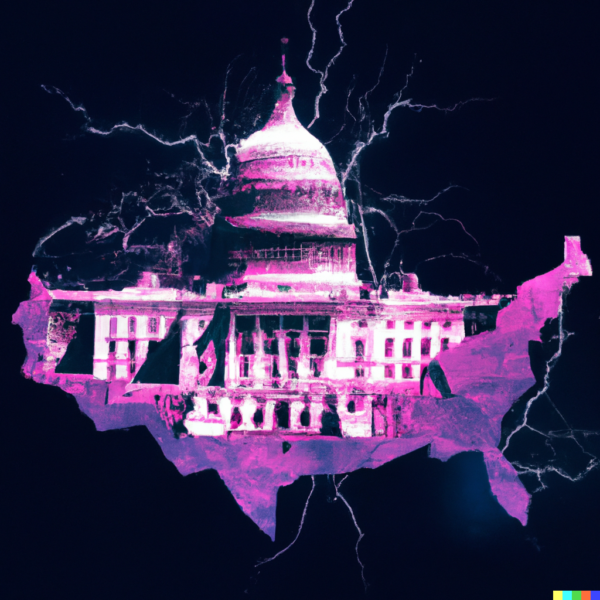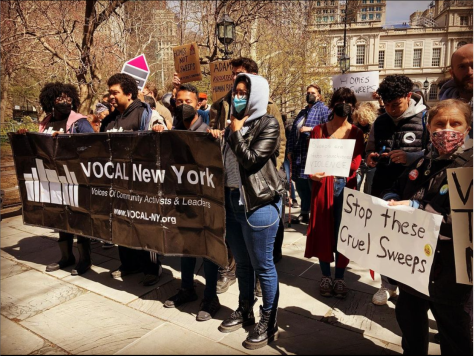What’s Hiding Behind the Turkey?
Like clockwork, generations of families gather together on the fourth Thursday of November to hold hands and talk about their lives, filling their stomachs with roasted turkey, cranberry sauce, corn on the cob, and mashed potatoes. When thinking about the popular American holiday Thanksgiving, love, turkey, and thankfulness are the words that come to mind. Although this holiday has sentimental value for many, most of what people know about the holiday is inaccurate.
The tradition of Thanksgiving began in 1621, when the Mayflower first arrived in Plymouth, Massachusetts. It is said that the pilgrims and Native Americans gathered together to celebrate their first successful harvest on the “new land.” However, what is not taught to young children is the other, rather bloody, origin of the holiday America celebrates. When the Pilgrims arrived in New England, they were malnourished and ill so nearly half of them died. Seeing the troubles that the pilgrims had, the Native Americans came to help them, teaching them to harvest certain plants. Yet, this was not done by free will; the ship captain initially kidnapped a Squanto, a Native American, to force them to reveal the Squanto’s hideaway. After having the Squantos teach them the rules of the land, the Pilgrims sold the Squanto tribe into slavery. The dark history of Thanksgiving is not taught to American children; they are solely painted a happy picture of the relationship between the Pilgrims and Native Americans.
Many are concerned about changing the education system on how young children are taught. Should they be taught about the dark history or should they be left with the happy but distorted picture? Amanda Lee, a Tut 2 student, said: “It’s difficult to say […] but the children should be taught about the Natives’ perspective, not just the white Pilgrim’s view.” She mentions how children should not be taught in excessive detail, but should know that there is another perspective. As they get older, they can be taught more about the truth of the holiday.
Another student replied similarly, saying that “It’s too late to remove Thanksgiving as a holiday, but not too late to educate.” This holiday, along with giving a distorted picture of the past, has been so over popularized that even the sunnier depiction cannot be seen. Protestors who completely disagree with the ethicality of Thanksgiving have proposed to call the holiday “National Day of Mourning.” Those who call it the National Day of Mourning prefer to see things from the perspective of the Native Americans, and thus completely disagree with the traditions celebrated on Thanksgiving, and calling them “grotesque” and “concealing the past.” Whether in support of, or against Thanksgiving, people will gather on the fourth Thursday of November to either celebrate or mourn for decades to come.








